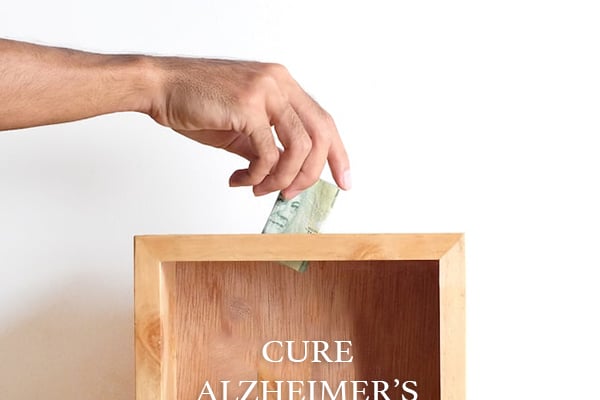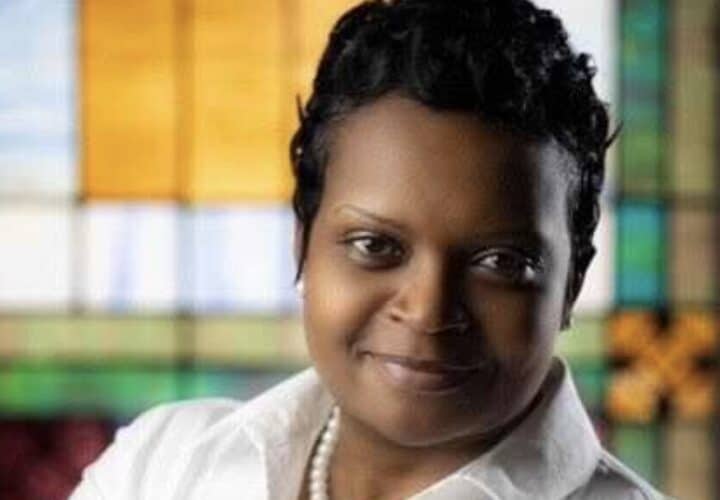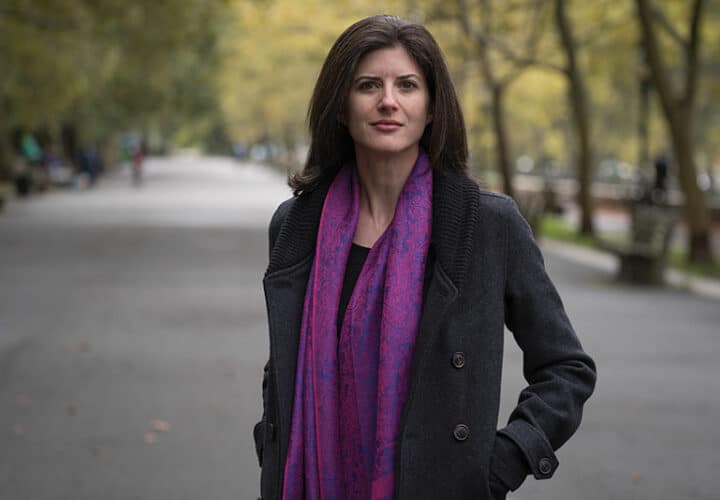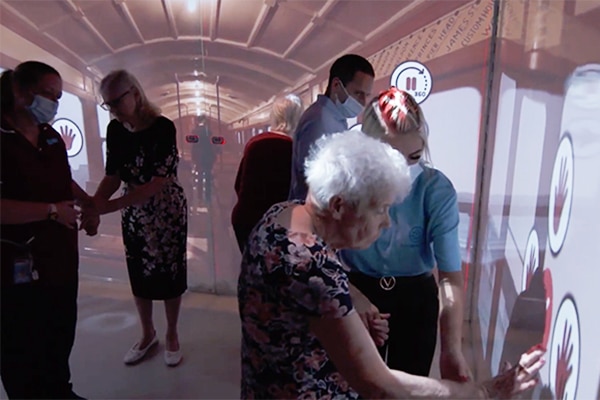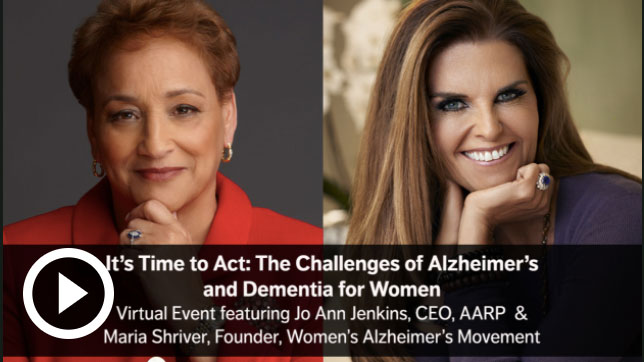Trying to choose the right Alzheimer's or dementia-related charity? Whether donors are looking to give money, time or talents, here's some guidance from an expert on making the most meaningful impact.
People can feel helpless when looking for meaningful ways to support a friend or family member living with dementia or Alzheimer’s. Because being a care partner or actively participating in the person’s life in other ways might not be possible due to geographical distance or other limitations, many choose to show solidarity by donating to charitable organizations like the Alzheimer’s Association or the Alzheimer’s Foundation of America.
The act of donating to a nonprofit seems simple enough, but it can be challenging.
Which organization is doing the most valuable work?
Where will a donation make the biggest impact?
Is it more helpful to donate to a massive, national organization or a small local one?
According to Patrick Kirby of DoGoodBetter, a fundraising consulting agency that helps donors and nonprofits get the most out of their efforts, supporting a good cause gets even more complicated when the gift has significant value — whether that’s emotional or monetary.
“Donations are a really personal decision,” Kirby said. “The end goal should be that you’re choosing a charitable organization that aligns with the purpose that best reflects why you’re giving in the first place.”
In order to make the most of your efforts, he added, it’s important to define your purpose and what you’re happy to give, not just willing to give. Here are some tips when planning to donate money, time or talent to a dementia-related charity.
Define the purpose behind the gift
Aside from the personal decisions, there are dozens of national nonprofits that focus on Alzheimer’s and dementia, and hundreds of smaller organizations that make big impacts locally, and they all typically need more than just money to operate.
“We always attach money to the idea of donating, but there are other ways to give back,” Kirby said. “Do you want to offer a cash donation? Donate to a research university? Maybe you’d rather give the gift of your time or join a board of directors.”
The best place to start, Kirby said, is to define the purpose behind your gift by making a list of reasons to donate.
“Sometimes it really helps to sit down with the development officer or a volunteer from the organization you’re looking to give to. Ask them questions and see if their goals as a nonprofit align with your own,” he added.
For example, he said, if a dementia nonprofit donates most of its funds to research, but you’d rather the money go to community support, that’s a clue your gift might be more personally valuable elsewhere.
“Figure out what’s most important to you. Are these new drugs to treat dementia or slow it down? Better care support? Then ask yourself what you want to see happen,” Kirby said. “These questions will guide you to where to direct funding.”
Determine the size of the gift
There are two basic ways to look at gifts: small or large.
“If you have a big amount of money you’re wanting to donate, sometimes you’ll make a greater impact by donating to a larger national group,” Kirby said. “Or if you have a smaller amount to give, local groups in your community are a great place to give back.”
The important part is to think outside the box, he added. There are countless opportunities to give in both big and small ways, not just to the well-known charities, but to smaller ones such as community memory cafes or agencies that grant funding to caregivers in need, like Mind What Matters Nonprofit.
Determine the type of gift
Of course, money is a finite resource for most, so understanding there are many other ways of giving back is tantamount.
“Non-monetary giving has a massive impact,” Kirby said. “Even publicly sharing how you’ve been impacted by the disease creates empathy where there maybe wasn’t any before. Telling your story is truly a gift.”
Next to sharing your story, Kirby said, volunteering time is another way to give. Some Alzheimer’s and dementia-focused nonprofits need supporters to help organize walks, fundraisers and other events at the community level. Check with nonprofits in your community and ask if you can help fold brochures or bake goodies for an upcoming event. The simplest tasks can be of great use, particularly for smaller organizations.
Another non-monetary gift is the gift of leadership, according to Kirby. Joining a board of directors is a great way to get involved. This is particularly fruitful for those who are enjoying retirement because it’s a way to reignite those career-based talents that may have fallen to the wayside.
“Say you have specific skills, like you’re an accountant. It might not be a check you’re handing to them, but you’re handing them expertise in the field of finance that helps move the organization into greater success,” Kirby said.
Contrary to popular belief, high-intent volunteers don’t have to have a leadership background to join a board. Kirby added that professional experience a person may be gained from past work experience, such as bookkeeping, writing grants, organizing events, designing websites and managing social media, are all valuable assets to an effective board.
Other ways to give back
While it’s a difficult subject to bring up, many people living with Alzheimer’s or dementia choose to donate their brain to a scientific research community in order to help further discoveries. According to the NIH’s National Institute on Aging, “One donated brain can make a huge impact, potentially providing information for hundreds of studies.”
Organizations that take brain donations, such as NIH-funded one like Mayo Clinic and Cleveland Alzheimer’s Disease Research Center, treat donations with the utmost respect and go to great lengths to honor the gift with memorials in the donors’ honor.
Another added benefit to this deeply personal decision is that many organizations, such as NIH’s NeuroBioBank, offer families autopsy reports for free. This can give families who’ve experienced a dementia journey much-needed closure by identifying the underlying disease pathology that science may not have been able to answer while the person is living.
Red flags to look for
While it’s nice to think all nonprofits follow their mission no matter what, that’s unfortunately not always the case, Kirby said.
“If it sounds too good to be true, like it’s an organization that’s promising cures […]with no documentation or proof, that’s a red flag,” he said. “Also be wary of nonprofits that do everything without a clear focus.”
Kirby said ultimately to “trust your gut” when it comes to choosing a nonprofit — but he encourages people to also do their research. Nonprofit watch groups like Charity Navigator give grades to charitable organizations based on specific criteria, such as the percentage of its funding that goes directly towards research versus how much goes to administrative or marketing costs. Look up the charities you’re considering supporting on a website like this so you have adequate background and can make the best decision for you.
“Keep in mind what fulfills you personally,” Kirby said. “Maybe it’s a check. Maybe it’s a volunteer position. Either way, when you’re giving to what gives you the most meaning, that’s going to have the greatest impact.”
